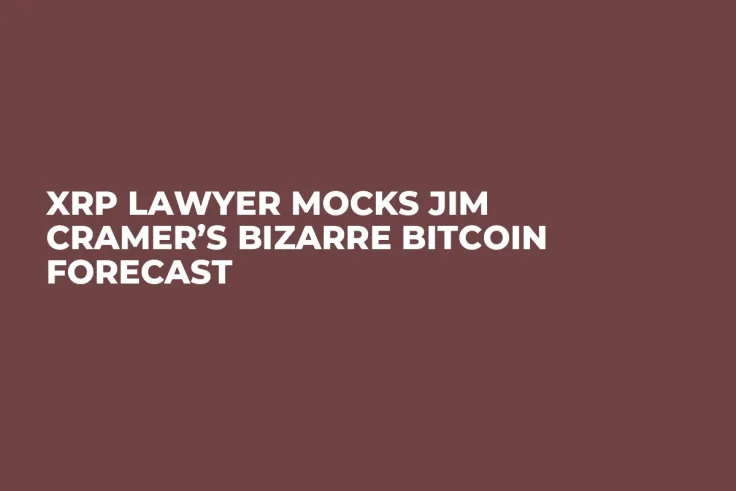
Disclaimer: The opinions expressed by our writers are their own and do not represent the views of U.Today. The financial and market information provided on U.Today is intended for informational purposes only. U.Today is not liable for any financial losses incurred while trading cryptocurrencies. Conduct your own research by contacting financial experts before making any investment decisions. We believe that all content is accurate as of the date of publication, but certain offers mentioned may no longer be available.
XRP lawyer John Deaton has recently taken a jab at Jim Cramer, the host of CNBC's Mad Money, for his inaccurate prediction of Bitcoin's price.
Deaton, who represented over 75,000 XRP holders in the lawsuit between Ripple and the SEC, responded to a tweet about Jim Cramer's recent BTC prediction, saying, "Glorious news. Literally, bought more Bitcoin."
Cramer, a former hedge fund manager, said in a TV segment on Monday that Bitcoin was "topping out," just days after claiming the cryptocurrency was "here to stay."
Cramer’s predictions tend to move in the opposite direction, hence the XRP lawyer's witty response.
As expected, Jim Cramer's prediction turned out to be contrary, as Bitcoin rather climbed to a 21-month high, setting a new yearly high.
At the time of writing, Bitcoin was up by 4.31% to $46,855, according to CoinMarketCap data. Bitcoin reached a high of $47,330 in trading on Monday. It last traded above $47,000 in April 2022.
On Wednesday, the SEC will have its first deadline to approve or reject one of the ETF applications, that of Ark 21Shares. It is widely assumed that the regulator might approve multiple applications at the same time.
BlackRock, Grayscale and other possible Bitcoin ETF issuers have filed final updates with the Securities and Exchange Commission, including significant fee disclosures that boosted investors' confidence that an approval is more likely than not.
Many investors believe that the day-one effect of an approval might have been overstated but that the event itself will offer new avenues for institutional inflows into Bitcoin in the long term.

 Dan Burgin
Dan Burgin Vladislav Sopov
Vladislav Sopov